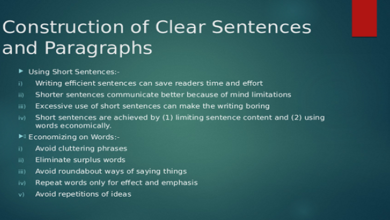
So far, we have discussed the ‘mechanics’ of business communication – planning, layout and construction. We now come to the content – what you want to say and how you are going to say it, in other words your style. There are two elements to style:
- Your tone
- Your words
Both of these are important in giving your communication the right quality, and in achieving the reaction you want.
Using the Right Tone
Although your tone will to a certain extent depend on the words you use, it is also influenced by the way you use them. If you set out to be friendly, for example, you will express yourself in a way that conveys that impression, whether you are speaking or writing. If you are not pleased about something, you will choose forms of expression that make that clear.
Be sincere
One of the most important things about getting your tone right is sincerity. Whether you are trying to make a sale, replying to an enquiry or making a complaint, you must believe in what you are saying, and that belief must be made clear. Look at the following passage: ‘We acknowledge with thanks receipt of your recent communication, and enclose a copy of our catalogue as requested. Should you have any queries, the undersigned will be pleased to assist you.’ Reading this, do you get the feeling that the ‘undersigned’ really will be pleased to assist you? It does not sound much like it. The language is so stilted and formal that it becomes merely a form of words, without real meaning. This may have been acceptable in the past, but in today’s more informal business climate, it would be considered almost rude.
Be clear
A common mistake is to try to emphasise important points with lengthy explanations. This is more likely to turn people off what you are saying. It is much better to use short, punchy, one-sentence paragraphs or repeat the word or idea once or twice in short sentences. In certain circumstances, you might use underlining or block capitals, but these devices should be used sparingly, otherwise they lose their effect.
Be brief
One way of achieving brevity, of course, is to use as few words as possible. You should not, however, let brevity get in the way of clarity; if shortening your communication makes it incomplete or difficult to follow, then it is not worth doing. Nor should you choose brevity before politeness; if using fewer words means omitting some of the courtesies, then again it is not worth it.
Achieving a conversational tone
There was a time when all business correspondence was expected to be formal and impersonal, but that is no longer the case – indeed this kind of style is now regarded as positively discourteous. The preferred style now is more informal and conversational; people write almost as they would speak – perhaps not quite as informally and certainly not using slang, but nevertheless in a friendlier manner. So think how you would react if you received different styles of communication, and write or speak accordingly.
The right tone for your purpose
We need to use different tones for different kinds of communication. We usually do this naturally when we speak – if we have made an error we automatically adopt an apologetic tone, when we are complaining we are forceful, when we are making a request, we are conciliatory. In writing, however, it sometimes requires a bit more thought to get the tone right for the occasion. The key is to think of the reaction you want – what you want to achieve – and adopt the most appropriate tone. So a sales letter should be enthusiastic, a letter demanding payment firm, a report persuasive.
Speaking Clearly
Do not think that style is something you need to be concerned about only when writing. You may be a little more informal when speaking than when writing, but your style is nevertheless important if you are going to get your message across clearly.
Last word
Tautology might be acceptable in certain circumstances, as another way of giving you a breathing space while you gather your thoughts. But if it is used too often it becomes irritating to the audience, and of course it makes you sound long-winded. Clichés, also, might occasionally be of use – they can help you to keep talking while you consider how to express your next statement. But they should be used sparingly, otherwise you will begin to sound as though you cannot think of anything original to say




